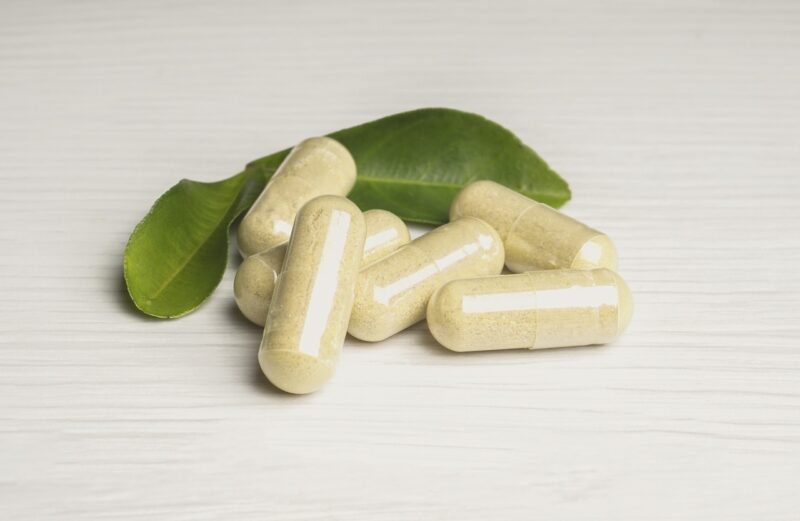Natural Muscle-Building Supplements That Actually Work – and Are Safer Than Steroids
November 14, 2024

When it comes to building muscle, many people are intrigued by the idea of supplements. With the market filled with various options ranging from protein powders to pre-workout boosters, it can be challenging to determine which products are effective and safe. Moreover, with the rise in the use of steroids and their associated health risks, many are seeking natural alternatives that can offer similar benefits without the adverse side effects.
In this comprehensive guide, we will explore natural muscle-building supplements that have been shown to work effectively and can provide enhancements to your fitness journey while prioritizing your health.
1. Understanding Muscle Growth: The Science Behind It
Muscle growth, or hypertrophy, occurs when muscle fibers experience damage through rigorous workouts, such as weightlifting. The body then repairs these fibers, resulting in an increase in muscle size. To facilitate this process, nutrients play a crucial role, especially proteins and certain vitamins and minerals. However, alongside a balanced diet, supplements can provide additional support for muscle growth.
2. What Are Natural Muscle-Building Supplements?
Natural muscle-building supplements are products derived from natural sources that aim to enhance muscle mass and improve athletic performance without the risk associated with anabolic steroids. These supplements can be taken in conjunction with a proper diet and workout regimen for optimal results. Key benefits typically include improved recovery, increased strength, and enhanced endurance.
3. Top Natural Muscle-Building Supplements
In this section, we will analyze some of the most effective natural muscle-building supplements available today.
3.1 Protein Powders
Protein is essential for muscle repair and growth. High-quality protein powders, such as whey, casein, and plant-based proteins (like pea or brown rice protein), provide the necessary amino acids your muscles require.
– Whey Protein: Fast-digesting and ideal for consumption post-workout. Whey is rich in branched-chain amino acids (BCAAs), which promote muscle recovery and growth.
– Plant-Based Proteins: For those who are vegan or lactose intolerant, options such as pea protein are excellent. These proteins aid in muscle synthesis without the adverse effects of dairy products.
3.2 Creatine
Creatine is one of the most researched supplements and is known for its muscle-building potential. It helps replenish adenosine triphosphate (ATP) levels in muscles during high-intensity workouts, allowing for greater performance.
– Benefits: Enhanced strength, improved recovery times, and increased muscle mass are some advantages associated with creatine supplementation.
– Use: Typically taken in cycles; a loading phase followed by a maintenance dose often yields the best results.
3.3 Beta-Alanine
Beta-alanine is an amino acid that helps buffer acid buildup in muscles during intense exercise, allowing you to train harder and longer.
– Benefits: Increased endurance, improved high-intensity performance, and reduced fatigue can occur with regular supplementation.
– Usage Note: Consistent use is essential, and one might experience a harmless tingling sensation shortly after ingestion known as paresthesia.
3.4 Branched-Chain Amino Acids (BCAAs)
BCAAs, composed of leucine, isoleucine, and valine, play a pivotal role in muscle protein synthesis and could help minimize muscle breakdown during workouts.
– Functionality: Taking BCAAs before or after workouts helps enhance recovery, mitigate muscle soreness, and improve overall performance.
– Dosage: A typical dosage ranges from 5 to 10 grams before or after a workout.
3.5 L-Carnitine
L-carnitine is known for its role in fat metabolism, but it also plays a vital role in muscle recovery and energy production.
– Benefits: In addition to fat loss, L-carnitine can improve exercise performance, increase endurance, and support recovery from strenuous workouts.
3.6 Tribulus Terrestris
A plant extract touted for its potential in increasing testosterone levels, Tribulus Terrestris may play a role in enhancing muscle mass and strength as well.
– Usage: This supplement should be taken consistently, with recommendations varying between 450 to 600 mg per day.
4. Potential Risks and Safety
While natural supplements are generally safer than steroids, it is essential to choose high-quality products from reputable sources to minimize potential health risks. Always consult with a healthcare professional before starting any supplementation regimen, especially if you have underlying health conditions or are taking medications. Also, be aware of the following:
– Quality Control: Look for third-party testing to ensure product safety and efficacy.
– Overconsumption: Follow recommended dosages. High doses can lead to various side effects.
– Balanced Approach: Supplements are just that—supplements. They should complement, not replace, a balanced diet and proper training.
5. Conclusion: Building Muscle Naturally
In conclusion, there is a plethora of natural muscle-building supplements that can provide a safe alternative to steroids. By incorporating protein powders, creatine, BCAAs, and other supplements into your regimen, you can effectively support your fitness goals without compromising your health. However, remember that supplements should work hand-in-hand with a nutritious diet and a structured workout program. Always prioritize your health and consult healthcare professionals to craft a regimen that works best for you.
Ultimately, the best strategy for natural muscle-building is consistency, effort, and educated choices regarding supplementation. By establishing a routine that emphasizes safety and science, you can build muscle and enhance performance the natural way.








